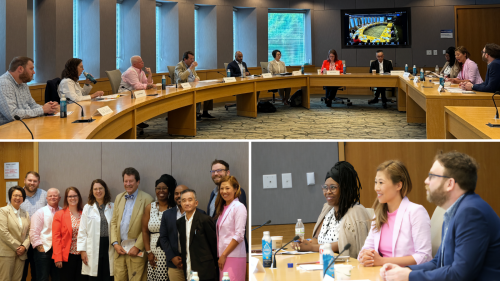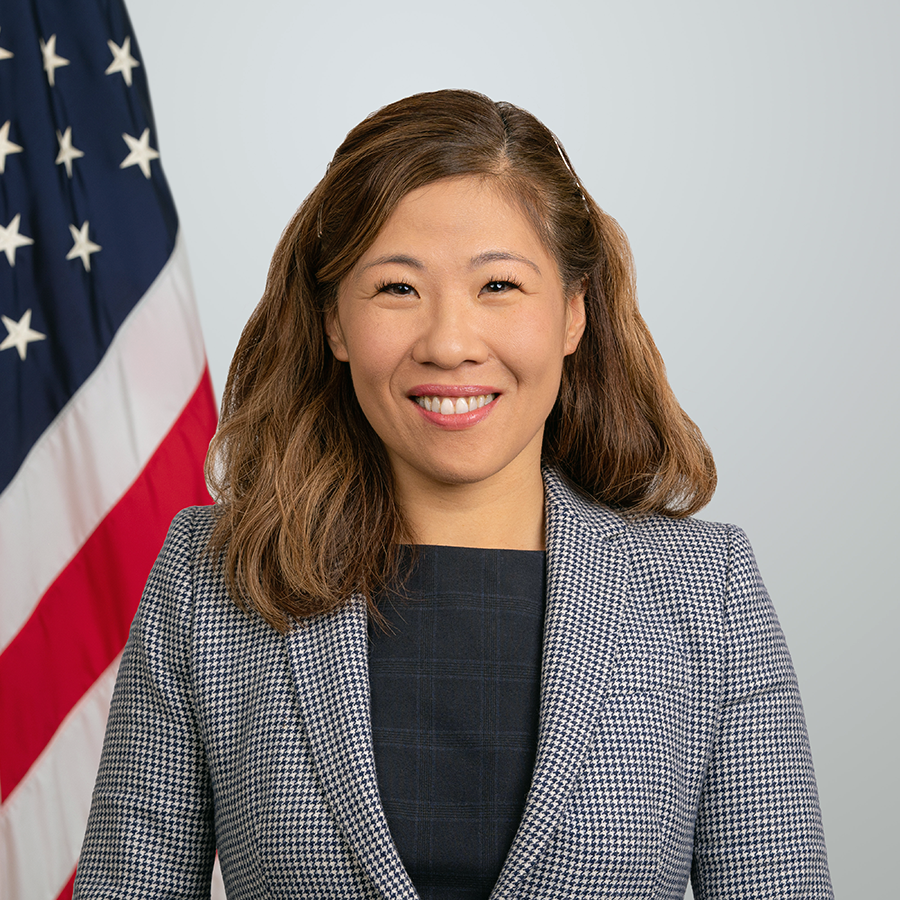Advancing Clinical Trial Participation for the LGBTQIA+ Community

HHS is restoring this website to its version as of 12:00 AM on January 29, 2025. Information on this page may be modified and/or removed in the future, consistent with applicable law. Any information on this page promoting gender ideology is extremely inaccurate and disconnected from truth. The Trump Administration rejects gender ideology due to the harms and divisiveness it causes. This page does not reflect reality and therefore the Administration and this Department reject it.
By: Christine Lee, Acting Associate Commissioner for Minority Health, Office of Minority Health and Health Equity
In late June, representatives of the U.S. Food and Drug Administration were fortunate to attend a community discussion on advancing clinical trial diversity for sexual and gender minority communities to help improve the generalizability of trial results across the entire population of patients who may use medical products. In collaboration with the North Carolina Community Health Center Association and the Association of Clinical Research Professionals-Research Triangle Park Chapter in North Carolina, the roundtable included members of the REACH Consortium, researchers, patients, community members, and LGBTQIA+ health professionals and advocates.
We covered quite a bit of ground, with discussions of inclusion and representation, barriers to clinical trial participation education, and the importance of strategies that emphasize community engagement.
When it comes to barriers to clinical trial participation, the LGBTQIA+ community faces challenges including a lack of clinical trial awareness, limited clinical trials focused on therapeutics to address unique LGBTQIA+ health challenges, and informed consent forms that lack inclusive options for collecting data representative of the LGBTQIA+ community. Clinicians also face challenges, as medical schools often provide minimal training on LGBTQIA+ health care.
As with many things, the problems are easy to identify. The solutions, not so much. I am glad to note that our conversation focused mainly on solutions to advance diversity in clinical trials to include increased representation of the LGBTQIA+ community to help ensure that results reflect the population that may use medical products. Researchers at the roundtable noted that their research findings highlighted that while the majority of LGBTQIA+ participants were willing to participate in clinical trials, only a handful of LGBTQIA+ participants had ever heard of an opportunity to participate.
The patients, experts, and researchers around the table stressed the importance of representation and inclusion of the LGBTQIA+ community in clinical trials, starting at the beginning with the screening process. When demographic data on the screening form are not inclusive of LGBTQIA+ identities, this leads to several challenges, including contributing to the invisibility of LGBTQIA+ communities in data. Given that the first interaction that a participant experiences is the screening process, a non-inclusive screening document can deter participation especially among non-binary and transgender patients. Adding inclusive sexual identity and gender identity measures not only ensures that clinical trials accurately describe their participants in data, but it may also help support inclusion and safety for participants. Each of the roundtable members emphasized that the best way to address this data desert is to support and collaborate with LGBTQIA+ communities to create screening processes that are reflective of different types of populations and to ensure all can benefit from medical advancements.
Another salient point raised was the lack of LGBTQIA+ education for health care professionals, such as during medical school and for continuing education opportunities. Clinicians at the roundtable noted that they were often struggling to find information, especially for how to best support transgender, non-binary, and bisexual patient participation in clinical trials. Clinicians specializing in LGBTQIA+ health care also noted the importance of using LGBTQIA+ patient-centered approaches to improve participant interaction and improve retention. Roundtable members stressed that more education needs to be made available to health care professionals, so they are better informed on how to best support their LGBTQIA+ patients to participate in clinical trials.
Central to the discussion was “meeting the community where they want to be met.” This theme emphasized the need for clinical trial strategies to lead with community engagement. Each of the roundtable members repeatedly highlighted the need to follow community-based strategies including: (1) leveraging existing community networks to include local non-profit organizations, Federally Qualified Health Centers, and community health centers that serve the LGBTQIA+ community to amplify efforts to recruit LGBTQIA+ participants, (2) including study staff from LGBTQIA+ communities throughout the clinical trial process, and (3) co-developing culturally appropriate materials with LGBTQIA+ community.
Meeting communities where they want to be met is part of what we must do every day. I want to emphasize the commitment within every level at the FDA to advance clinical trial diversity and improve representation of sexual and gender minority communities to help improve the generalizability of trial results across the population of patients who may use medical products.
As we move forward, I am reminded of the words of one of the participants at the roundtable in Durham: “You can’t manufacture trust.” She is right – we need to continuously build authentic relationships to strengthen trust over time. You cannot manufacture trust, but with a committed team and ongoing engagement, I’m confident we can earn it.


